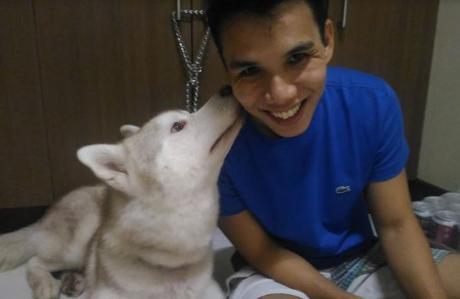
If you have a dog that's getting old, you probably know that he needs different care than when he was younger. As dogs age, just like people their health care and nutritional needs change. They may start to experience a range of problems that affect their bones, eyesight and hearing.
Joint and Muscle Pain
Dogs can experience more joint and muscle pain as they age due to loss of muscle strength and bone density. Just like senior people, senior dogs are more prone to degenerative diseases. Painful conditions like tendonitis and arthritis affect many senior dogs, especially as they become less active. You may notice that your dog isn't able to walk as far on outdoor walks or find a comfortable sleeping position. He may have trouble climbing stairs, getting into the car, or simply getting up after laying down for a while. Many dogs who are experiencing joint and muscle pain can benefit from cetyl m for dogs, a natural dietary supplement that can help joint pain.
Eyesight
Many dogs develop cataracts that cause vision impairment or vision loss as they age. Certain breeds are more prone to cataracts due to eye color and sensitivity to strong UV rays which may damage pupils. If you notice that your dog's eyes look hazy or glazed over, he may be developing cataracts. Senior people get cataracts too, but new laser technology has made cataract treatment for people much more manageable and affordable. Unfortunately, treatment for cataracts in dogs has not progressed as quickly, and treatment is not affordable for most dog owners. Depending on location and type of treatment, cataract surgery on dogs can cost as much as $5,000 per eye.
Hearing
As a dog ages, hearing can diminish in one or both ears. You may notice that your dog doesn't respond when you call him or looks in the opposite direction when you do. If hearing loss only affects one ear, he will still hear sounds in his good ear, but it will be hard to distinguish where the sound is coming from. He may look in the opposite direction of the sound if it's in the direction of his deaf ear. Dogs experience hearing loss for many of the same reasons that people do. Common reasons that dogs lose their hearing include inflammation or infection in the ear canal, wax buildup, ear mites, exposure to certain drugs, noise or head trauma, and old age.



